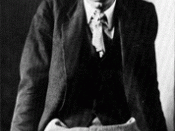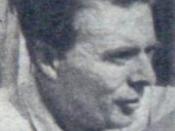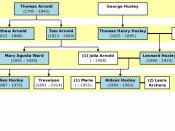Kressl Professor Eisenberg English 111 January 18, 2009 Utopia: The Naïve Dream Dating all the way back to even the Neanderthals, humans have always turned to forming governments. People seem to know intrinsically that they need to have some sort of hierarchy to enable a society to run efficiently. Developing a system, however, that is practicable and just, is a more challenging task than would first seem. Humans have experimented with countless different kinds of structures, yet there has never been a perfect one implemented. No matter, a problem is always already present or about to make itself present. One system will leave the people unhappy, another one will be defenseless against rebellions, and another will not be able to sustain a working economy. This hopeless search for a perfect government is what inspired utopian literature. "The Birds" by Aristophanes and "The Republic" by Plato are fine examples of ancient utopian literature.
Nevertheless, it was only in 1516, when Sir Thomas wrote his legendary book, "Utopia," that it became an official genre. The word 'utopia' comes from two Greek words that mean "good place" and "no place." A utopia is the place where every person wants to live, yet is virtually impossible to exist. Whenever it has been tried, there is always something that has to ruin the dream of it succeeding- whether it be an external or internal rebellion. Most "utopian experts" hold that a society must own a certain number of qualities for it to be labeled as a utopia. The first characteristic is that it must have as set of principles that are in accord with the needs and desires of the people. The second is that there has to be a competent leader or group of leaders who is able to insure that the principles...


